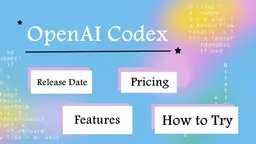Morph Giriş
Morph, ekiplerin işlevsel, AI destekli veri uygulamalarını hızlı bir şekilde oluşturmasını sağlayan kapsamlı bir veri uygulama platformudur ve teknik ve teknik olmayan kullanıcılar için erişilebilir bir işbirliği alanında birden fazla kaynaktan veri toplar.
Daha Fazla GösterMorph Nedir
Morph, veri yönetimi ile uygulama geliştirme arasındaki boşluğu kapatmak için tasarlanmış modern bir veri platformudur. Ekiplerin verilerini işbirliği içinde yönetebileceği, analiz edebileceği ve eyleme geçirilebilir içgörüler ve işlevsel uygulamalar haline dönüştürebileceği bir çalışma alanı sağlar. Platform, veri işleme gücünü AI desteği ile birleştirerek, kodlama uzmanlıklarına bakılmaksızın veri mühendislerinden iş analistlerine kadar herkesin erişimine açar.
Morph nasıl çalışır?
Morph, verileri çeşitli kaynaklardan merkezi bir çalışma alanına, yerleşik PostgreSQL veritabanı ile güçlendirilmiş olarak içe aktararak çalışır. Kullanıcılar, SQL ve Python aracılığıyla verileriyle etkileşimde bulunabilir ve platform, geliştirme için bulut tabanlı bir VS Code ortamı sağlar. Sistem, kullanıcıların sorguları yazmalarına, verileri analiz etmelerine ve uygulamalar oluşturmalarına yardımcı olmak için veri yönetimi görevleri için özel olarak eğitilmiş entegre bir AI asistanı içerir. Veri boru hatları, veri soyunu daha iyi anlamak için bir tuvalde görselleştirilebilir ve tüm süreçler planlı çalıştırmalar aracılığıyla otomatikleştirilebilir. Platform, Git yönetimi aracılığıyla işbirlikçi çalışmayı destekler ve birden fazla ekip üyesinin aynı projede sürüm kontrolünü koruyarak çalışmasına olanak tanır. Morph'ta oluşturulan uygulamalar ve içgörüler, ekip üyeleriyle basit URL'ler aracılığıyla kolayca paylaşılabilir.
Morph Faydaları
Morph kullanımı, organizasyonlar için birkaç önemli avantaj sağlar. Teknik engelleri ortadan kaldırarak veri erişimini ve analizini demokratikleştirir, böylece hem teknik hem de teknik olmayan ekip üyeleri verilerle etkili bir şekilde çalışabilir. Platform, kullanıma hazır altyapı ve AI desteği sağlayarak geliştirme süresini ve karmaşıklığını azaltır. Ekipler, paylaşılan çalışma alanları ve sürüm kontrolü sayesinde geliştirilmiş işbirliğinden faydalanır. Yerleşik güvenlik uyumluluğu (SOC2 Tip 2) veri korumasını garanti ederken, otomatik zamanlama özellikleri verileri manuel müdahale olmadan güncel tutar. Ayrıca, özel kütüphaneleri yükleme esnekliği ve paylaşılabilir veri uygulamaları oluşturma yeteneği, onu çeşitli iş ihtiyaçları için çok yönlü bir çözüm haline getirir.
Morph Aylık Trafik Trendleri
Morph geçen ay 3.6k ziyaret aldı ve -0.4% oranında bir Hafif Düşüş gösterdi. Analizimize göre, bu eğilim yapay zeka araçları sektöründeki tipik pazar dinamikleriyle uyumludur.
Geçmiş trafiği görüntüle
Popüler Makaleler

Denemeniz Gereken En İyi 5 Ücretsiz AI NSFW Kız Arkadaş Sohbet Robotu—AIPURE'un Gerçek İncelemesi
May 27, 2025

SweetAI Chat ve CrushOn.AI Karşılaştırması: 2025'te Nihai NSFW AI Kız Arkadaşı Hesaplaşması
May 27, 2025

OpenAI Codex: Çıkış Tarihi, Fiyatlandırma, Özellikler ve Önde Gelen Yapay Zeka Kodlama Aracını Nasıl Deneyebilirsiniz
May 19, 2025

SweetAI Chat: 2025'in En İyi NSFW AI Sohbet Robotu
May 14, 2025
Daha Fazla Göster







